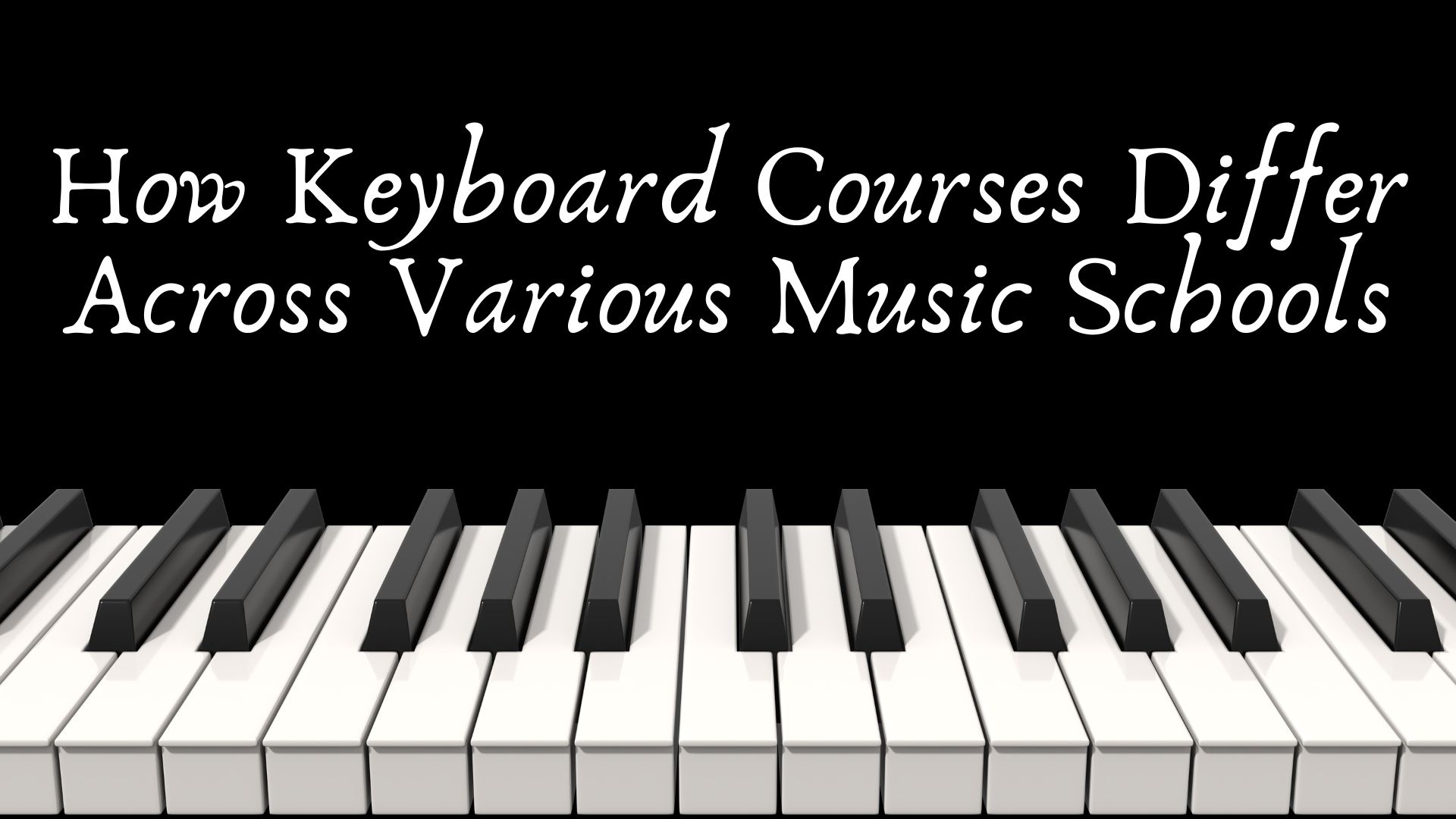Learning to play the keyboard is a rewarding journey that combines creativity, technique, and theory. However, not all keyboard courses are created equal. When prospective students begin exploring music schools, they often find that keyboard courses vary widely in their approach, curriculum, teaching style, and outcomes. This article delves into the key ways keyboard courses differ across various music schools and what students should consider when choosing the right program for their musical ambitions.
Curriculum Focus: Classical, Contemporary, or Genre-Specific
One of the most significant differences among keyboard courses is their curriculum focus. Some music schools emphasize classical piano training, teaching students to master composers such as Bach, Beethoven, and Chopin. These courses often stress rigorous technique, sight-reading, and music theory grounded in classical traditions.
Other schools prioritize contemporary styles like pop, jazz, rock, or gospel. These programs may focus more on improvisation, chord progressions, modern harmony, and playing by ear. Students learn how to accompany bands, write songs, and develop versatility on the keyboard.
Then, there are schools that offer genre-specific training, such as jazz conservatories or electronic music institutes, where keyboard courses are tailored to the nuances of that particular style. This specialized focus can deeply enhance a student’s proficiency in their area of interest.
Teaching Methodologies: One-on-One vs. Group Classes
Different schools employ varied teaching methods for keyboard instruction. Traditional conservatories often provide one-on-one lessons, which allow personalized attention from experienced instructors. This format helps students receive customized feedback and develop their technique meticulously.
Conversely, some community music schools or online platforms favor group lessons or workshops. Group classes foster peer learning, collaboration, and motivation but might not offer the individualized coaching that some students need to progress swiftly.
Hybrid models are also emerging, combining private lessons with group theory classes, ensemble playing, or masterclasses. This balanced approach can suit students who want both personalized guidance and collaborative experience.
Course Duration and Structure
Keyboard courses differ widely in their length and structure. Some music schools offer intensive, short-term courses that focus on foundational skills or specific techniques. These might span a few weeks or months and are ideal for beginners or hobbyists seeking quick progress.
On the other hand, degree programs at universities or conservatories can take several years to complete, including comprehensive training in performance, theory, history, and pedagogy. These long-term courses prepare students for professional careers as performers, educators, or composers.
Additionally, modular or flexible courses allow students to choose topics or skills they want to master at their own pace. This approach suits working adults or those balancing multiple commitments.
Technology Integration and Facilities
Modern music schools vary in their use of technology and facilities to enhance keyboard learning. Some institutions boast state-of-the-art studios equipped with digital pianos, MIDI controllers, synthesizers, and music production software, enabling students to explore electronic music and recording.
Other schools focus primarily on acoustic piano training in traditional practice rooms with concert grand pianos. While these settings emphasize classical technique and live performance skills, they may offer less exposure to digital music creation.
Some programs integrate both, teaching students to bridge acoustic piano skills with modern music technology, a valuable skill set for today’s diverse music industry.
Performance Opportunities and Community
The availability and emphasis on performance opportunities can vary greatly. Prestigious conservatories often require students to participate in regular recitals, competitions, and ensemble performances, helping build stage presence and confidence.
Community music schools may offer more casual performance settings such as open mic nights, student showcases, or group jam sessions. These environments encourage experimentation and social learning but may lack the competitive rigor of professional programs.
Some schools foster a tight-knit community through workshops, festivals, and collaborations with other musicians, enriching the student experience beyond just keyboard skills.
Qualification and Certification
Music schools differ in the type of certification or qualifications their keyboard courses offer. Universities and conservatories often award diplomas, bachelor’s, or master’s degrees in music performance or education, recognized professionally worldwide.
Other institutions provide certificates of completion, diplomas, or graded exams affiliated with organizations like ABRSM, Trinity College London, or the Royal Conservatory of Music. These certifications can boost a student’s credentials and open doors for further study or teaching opportunities.
There are also informal courses that prioritize skill-building without formal certification, aimed at enthusiasts and hobbyists.
Cost and Accessibility
Cost is a practical but important differentiator. High-end music schools with renowned faculty and advanced facilities typically charge premium tuition fees. Scholarships and financial aid might be available but competitive.
Community centers, local music schools, and online courses generally offer more affordable options, sometimes with flexible payment plans.
Location and scheduling flexibility also influence accessibility. Some students may prefer online keyboard courses for convenience, while others value the in-person interaction at a physical campus.
Conclusion: Choosing the Right Keyboard Course for You
The variation among keyboard courses across different music schools is vast, shaped by their curriculum focus, teaching methods, duration, technology use, performance opportunities, certification, and cost.
When selecting a keyboard course, prospective students should clarify their goals — whether pursuing a professional music career, enhancing skills for personal fulfillment, or exploring a new hobby. Researching schools’ course offerings, faculty expertise, facilities, and student testimonials can help identify the best fit.
Ultimately, the right keyboard course is one that resonates with your musical interests, learning style, and life circumstances, setting you on a fulfilling path to mastering the keyboard.




